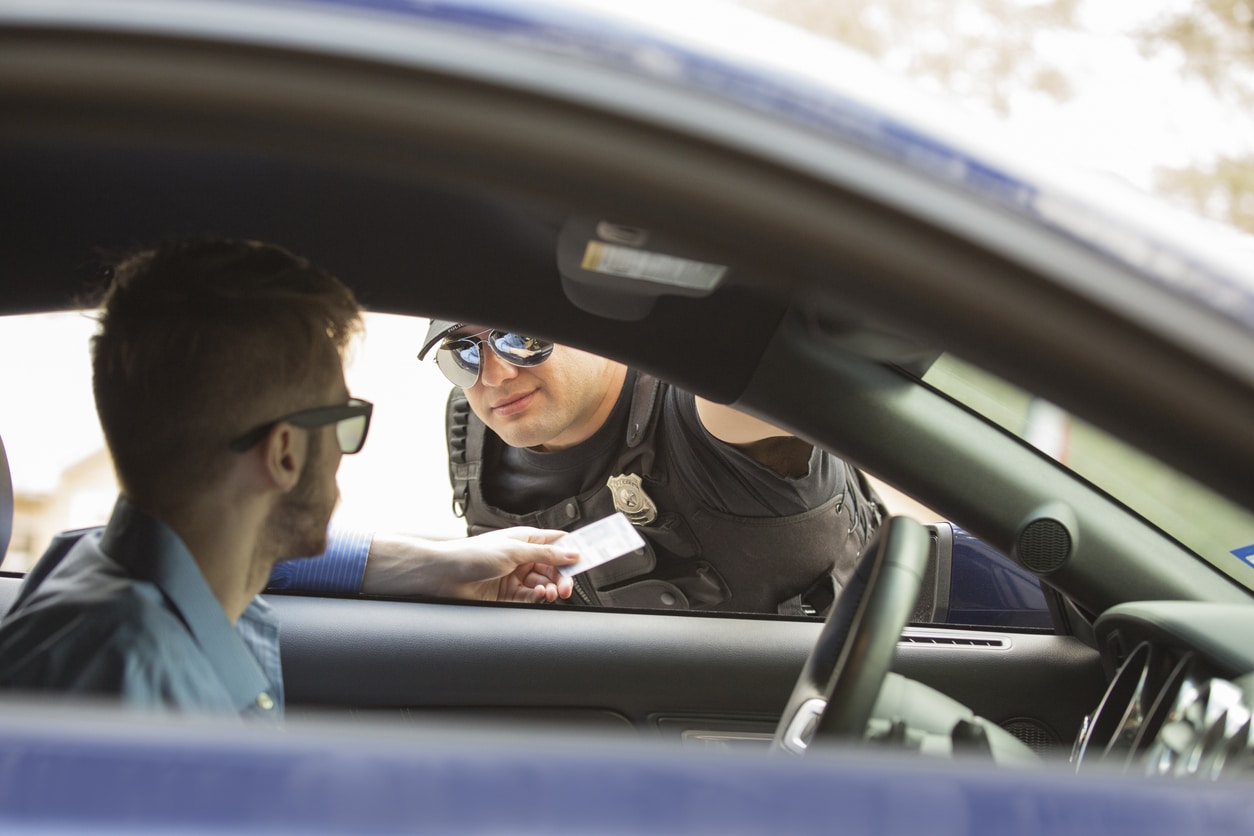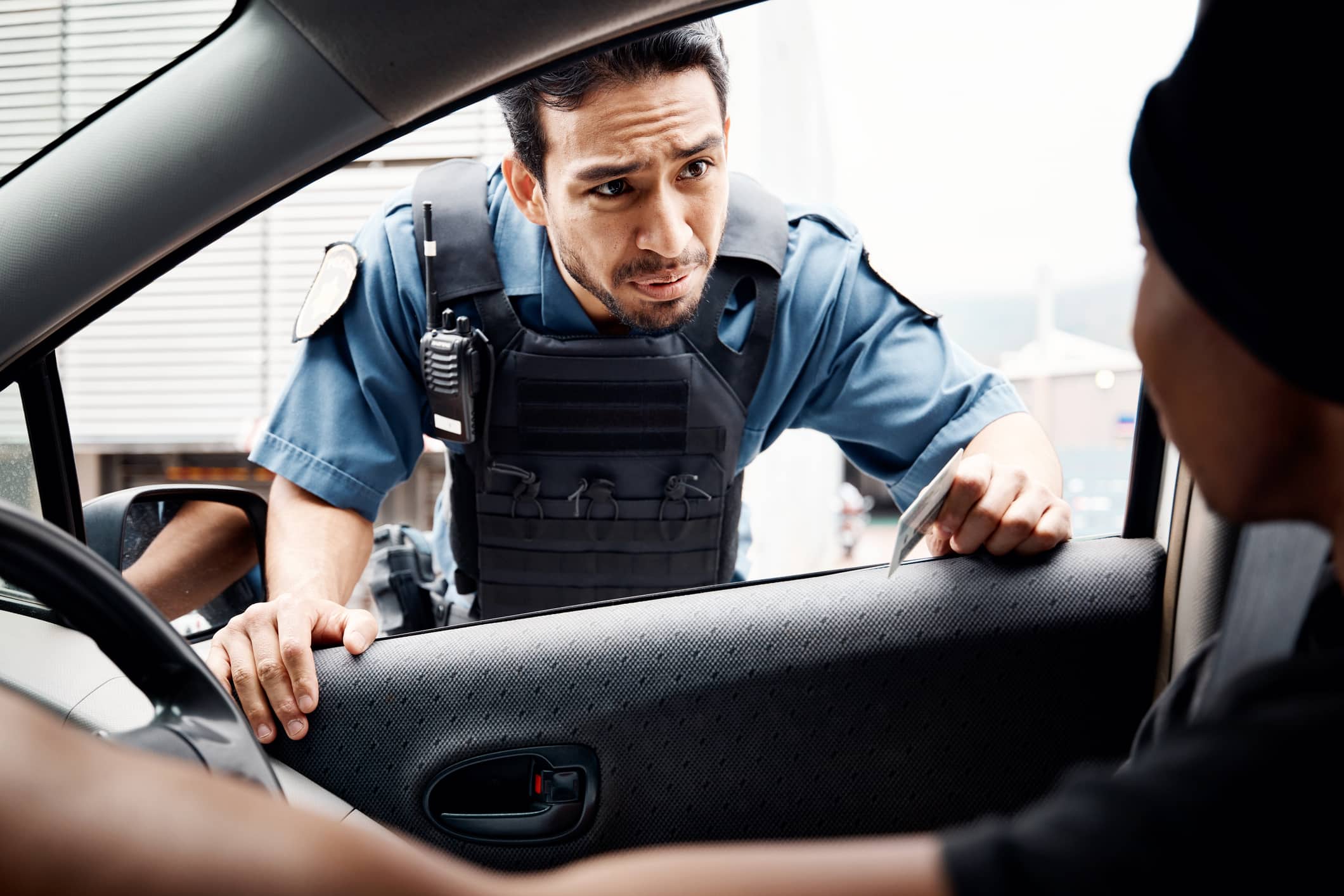As leading criminal defense lawyers in Orlando, Florida, we are adept at handling all types of traffic violations charges, including driving without a driver’s license. Contact our law firm to schedule an appointment with a skilled attorney to discuss your case.
Driving without a driver’s license, or with a suspended, revoked, or canceled license, may not sound like a serious criminal charge — but it is. Conviction can result in major penalties in the State of Florida, including a criminal record. It can result in jail time, substantial fines, higher insurance rates, and additional negative consequences.
Fortunately, a simple driving mistake doesn’t have to ruin your driving record when you work with an experienced criminal defense attorney. If you’ve been charged with no valid driver’s license or a similar offense, the legal experts at Sergio Cruz Criminal Defense can help mitigate the legal penalties and get you back on track.
This article will explore the nature of a no valid driver’s license charge in Florida, including potential penalties, similar offenses, and possible legal defense strategies.
Were You Caught Driving Without a Valid Driver’s License in Orlando?
In Florida, being caught driving without a valid driver’s license can result in significant legal consequences, depending on the specific circumstances of the offense. However, with the assistance of an experienced attorney, it may be possible to mitigate these outcomes.
How Our Driving Without a License Lawyer Can Help You
Our driving without a driver’s license lawyers can help you review the circumstances of your case, identify any potential legal defenses, and work to get the charges reduced or dismissed. We will negotiate with prosecutors on your behalf, represent you in court, and ensure your rights are protected throughout the entire legal process, helping you avoid severe penalties such as fines, jail time, and a permanent criminal record.
Definition of ‘No Valid Driver’s License’ in Florida
According to Florida Statutes, Section 322.03, ‘no valid driver’s license’ refers to when an individual operates a motor vehicle on public roads without having a valid driver’s license issued by the state of Florida or recognized by the state. It may sound inconsequential, but the reality is that this is a serious charge that can result in a range of frustrating legal penalties.
What Constitutes a Driver’s License?
In Florida, a valid driver’s license is a state-issued document that authorizes a driver to operate a motor vehicle on public roads. Several state-issued documents fulfill this requirement, including the following:
- Class E driver’s license: the standard license for non-commercial vehicles
- Commercial driver’s license (CDL): the license required to operate commercial vehicles, including 18-wheeler trucks and buses
- Learner’s permit: a license that allows new drivers to operate a vehicle under specific conditions, like being accompanied by a licensed adult
- Motorcycle endorsement: an addition to the standard Class E license required to operate motorcycles in Florida
To obtain a valid driver’s license, an individual must provide proof of identity and residency in Florida, as well as pass vision, knowledge, and road tests. Minors also require parental consent and completion of a driver’s education course.
Driver’s License Exemptions
Certain drivers may be exempt from holding a Florida driver’s license while operating a vehicle in the state. These individuals include the following:
- Non-residents: individuals who possess a valid driver’s license from another U.S. state or territory, or students enrolled at Florida educational institutions who hold a valid license from their home state or country
- Military personnel: active-duty military members stationed in Florida, as well as their dependents who possess a valid driver’s license from another state
- Government employees: non-residents employed by the federal government who drive a federal vehicle on official business
Unsure whether or not you’re exempt? Contact the Florida Department of Highway Safety and Motor Vehicles (DHSMV) to find out if you qualify for a driver’s license exemption.
Foreigners and Illegal Immigrants
Florida’s driver’s license laws also carry implications for Orlando’s vibrant international community. Here are a few key considerations:
- International driver’s license. An international driver’s license is valid for driving in Florida for up to one year, after which the driver must obtain a standard license.After this period, a Florida driver’s license must be obtained.
- Foreign driver’s license. A foreign driver’s license is recognized for tourists and short-term visitors, typically for up to one year.
- Undocumented immigrants. Florida does not issue driver’s licenses to undocumented immigrants. If caught driving without a valid license, they will face the same legal penalties as any other individual driving without a license.
In summary, a ‘no valid driver’s license’ charge in Florida refers to driving without an authorized state-issued license or a license recognized by Florida law. Understanding what constitutes a valid driver’s license and the exemptions for certain individuals can help clarify who is legally allowed to drive in Florida.
What Is the Difference Between No Valid License vs. Suspended License?
In Florida, the legal distinctions between driving with no valid license versus a suspended license are significant — both in the nature of the offense and the potential penalties. We explain some of these key differences below.

No Valid License
Driving with no valid license refers to operating a motor vehicle without ever having been issued a valid driver’s license by the state of Florida or any other jurisdiction. It is a distinct charge, separate from the charges of driving with an expired license and driving with a suspended license. Driving with no valid license is typically considered a second-degree misdemeanor, punishable by up to 60 days in county jail and a fine of up to $500.
Suspended License
Driving with a suspended license means operating a motor vehicle when your valid Florida driver’s license has been temporarily suspended or revoked by the state due to various reasons. Drivers are typically notified of the suspension or revocation by the Department of Highway Safety and Motor Vehicles (DHSMV).
Common reasons for suspended licenses include an accumulation of points for traffic infractions, driving under the influence (DUI), failure to pay traffic fines or child support, and refusal to submit to a breathalyzer test. The first offense is typically considered a second-degree misdemeanor, punishable by up to 60 days of jail time and fines up to $500. Subsequent offenses elevate both the charge and the associated penalties.
What Are the Penalties for Driving with No Valid License?
Driving with no valid license in Florida is a misdemeanor offense that can result in significant penalties. The severity of the penalties increases with subsequent offenses. Here’s a detailed breakdown of the penalties:
- 1st offense: second-degree misdemeanor, punishable by fines up to $500, up to 60 days in jail, additional court costs, and sometimes community service
- 2nd offense: second-degree misdemeanor with the potential for enhanced penalties, fines of up to $500, jail time up to 60 days, court costs, and community service
- 3rd offense: second-degree misdemeanor, punishable by up to $500 in fines, up to 60 days in jail, higher court costs, community service, possible vehicle impoundment, a conviction mark on your driving record, and future licensing issues
The penalties for driving with no valid license in Florida are serious and escalate with repeated offenses. Understanding these penalties and seeking legal assistance can help mitigate the impact of these charges.

What Are the Penalties for Driving with a Suspended, Canceled, or Revoked License?
Driving with a suspended, canceled, or revoked license in Florida is also a serious offense that carries escalating penalties for repeat offenders, as outlined in Florida Statutes, Section 322.34. Here’s a breakdown of the penalties based on the number of offenses:
- 1st offense: a second-degree misdemeanor, punishable by up to 60 days in county jail, fines up to $500, possible probation, and court costs
- 2nd offense: a first-degree misdemeanor, punishable by up to one year in county jail, fines up to $1,000, possible probation, and higher court costs
- 3rd offense: a third-degree felony, punishable by up to five years in a state prison, fines of up to $5,000, possible probation, and higher court costs
Additionally, habitual offenders may face extended suspension or revocation periods, vehicle impoundment, additional marks on their driving record, and the status of a habitual traffic offender, resulting in a five-year revocation period. Driving with a suspended, canceled, or revoked license in Florida carries severe penalties that increase with each subsequent offense, which is why it’s a good idea to work with a criminal defense lawyer to mitigate the penalties.
What Is Permitting an Unauthorized Operator to Drive?
In Florida, permitting an unauthorized operator to drive is defined by Florida Statutes, Section 322.36. It refers to the act of knowingly allowing someone who is not legally permitted to drive to operate a motor vehicle. This is a violation of Florida law and can result in penalties for the vehicle owner or person responsible for allowing the unauthorized individual to drive.
An unauthorized driver refers to someone who is not legally permitted to operate a motor vehicle because they don’t have a driver’s license, have a suspended, revoked, or canceled driver’s license, or are underage and not yet eligible for a driver’s license. In the context of this offense, someone can only offer ‘control of the vehicle’ if they are the owner or authority of the vehicle.

What Happens if You Allow Someone Without a Proper License to Drive?
Allowing someone without a proper license to drive in Florida is a violation of the law and can result in significant legal consequences for the person who permits it. According to Florida Statutes, Section 322.36, this offense is typically a second-degree misdemeanor, punishable by up to 60 days in jail, fines up to $500, court costs, and possible probation.
Additional consequences include legal liability, should the person without a proper license be involved in an accident, as well as insurance issues, as policies are unlikely to cover damages in these scenarios. Conviction of this offense is recorded on the vehicle owner’s criminal record, which can result in long-term consequences.
What Are the Best Defenses Against Driving Without a Driver’s License?
If you’ve been charged with driving without a driver’s license in Florida, there are several legal defenses that may be available to you, depending on the specifics of your case. Our attorneys may be able to make one of the following arguments on your behalf:
- You had a valid driver’s license at the time of your traffic stop, but you weren’t carrying it on you.
- You recently moved to Florida and are within the grace period to obtain a state license.
- You were unaware that your license was expired, suspended, or revoked.
- You were driving due to an emergency or urgent necessity.
- You were charged during an unlawful traffic stop.
Driving offenses can carry significant penalties in the State of Florida. After a careful evaluation of the circumstances, our attorneys can help you present the strong evidence you need to secure the best possible outcome.
Sergio Cruz Criminal Defense: Top Driver’s License Attorneys in Central Florida
There’s no good reason to let the legal consequences of a simple traffic offense spiral out of control, especially when Sergio Cruz Criminal Defense is standing by to help. When you’re ready to set the record straight and put your driving mistake behind you, contact our law office for top-tier legal advice and guidance.
Contact UsContact us now
In need of a strong defense? Don’t face your charges alone. Get the legal support you need call today or email us. Your defense starts here.
